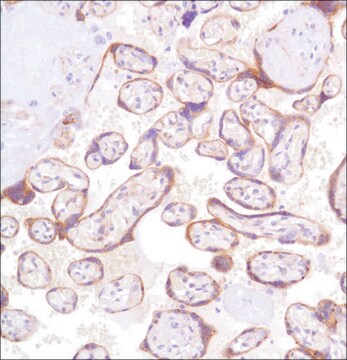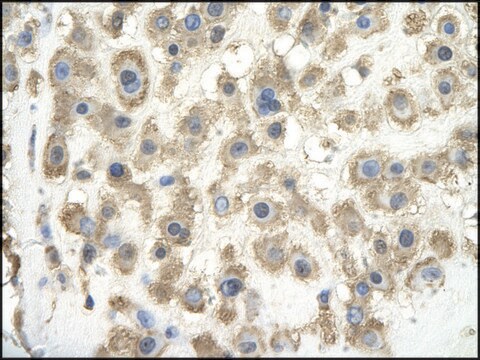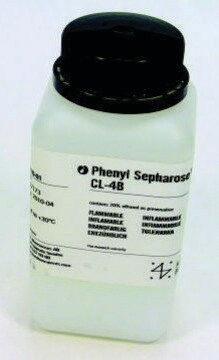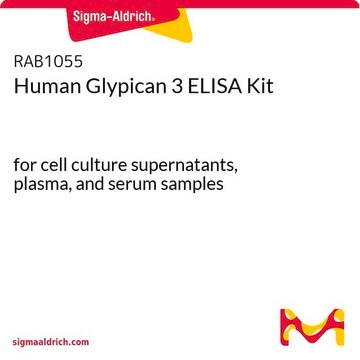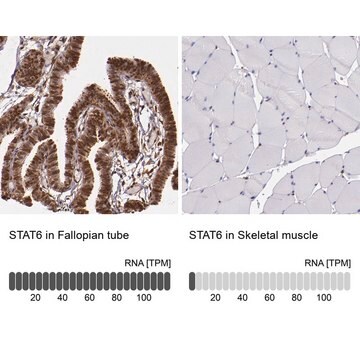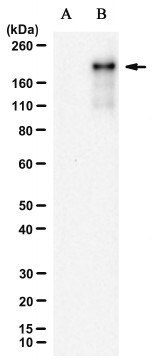SAB1402788
Monoclonal Anti-GPC3 antibody produced in mouse
clone 2C12, ascites fluid
About This Item
Productos recomendados
origen biológico
mouse
Nivel de calidad
conjugado
unconjugated
forma del anticuerpo
ascites fluid
tipo de anticuerpo
primary antibodies
clon
2C12, monoclonal
mol peso
antigen ~37 kDa
reactividad de especies
human
técnicas
indirect ELISA: suitable
western blot: 1:500-1:1000
isotipo
IgMκ
Nº de acceso NCBI
Nº de acceso UniProt
Condiciones de envío
dry ice
temp. de almacenamiento
−20°C
modificación del objetivo postraduccional
unmodified
Información sobre el gen
human ... GPC3(2719)
Categorías relacionadas
Descripción general
Inmunógeno
Sequence
HAKNYTNAMFKNNYPSLTPQAFEFVGEFFTDVSLYILGSDINVDDMVNELFDSLFPVIYTQLMNPGLPDSALDINECLRGARRDLKVFGNFPKLIMTQVS
Forma física
Cláusula de descargo de responsabilidad
¿No encuentra el producto adecuado?
Pruebe nuestro Herramienta de selección de productos.
Código de clase de almacenamiento
11 - Combustible Solids
Clase de riesgo para el agua (WGK)
WGK 1
Punto de inflamabilidad (°F)
Not applicable
Punto de inflamabilidad (°C)
Not applicable
Elija entre una de las versiones más recientes:
Certificados de análisis (COA)
¿No ve la versión correcta?
Si necesita una versión concreta, puede buscar un certificado específico por el número de lote.
¿Ya tiene este producto?
Encuentre la documentación para los productos que ha comprado recientemente en la Biblioteca de documentos.
Global Trade Item Number
| Número de referencia del producto (SKU) | GTIN |
|---|---|
| SAB1402788-200UL | 4061837227721 |
Nuestro equipo de científicos tiene experiencia en todas las áreas de investigación: Ciencias de la vida, Ciencia de los materiales, Síntesis química, Cromatografía, Analítica y muchas otras.
Póngase en contacto con el Servicio técnico